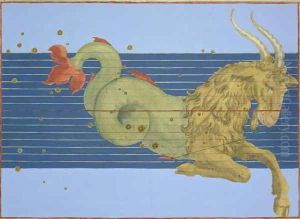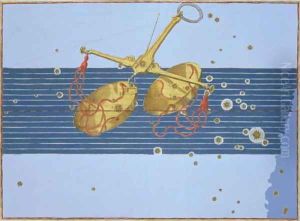Johann Bayer Paintings
Johann Bayer was a German lawyer and celestial cartographer born in Rain, Bavaria, in 1572. He is best known for his work 'Uranometria', published in 1603, which is considered the first modern star atlas. Bayer's 'Uranometria' introduced a new system of star designation and cataloguing that used Greek and Roman letters to label stars according to their brightness within each of the 88 constellations. This system, known as Bayer designation, is still in use today. Bayer's interest in astronomy was likely a hobby rather than a profession, as his primary occupation was in law. Despite this, his contributions to astronomy were significant. 'Uranometria' contained detailed charts of all five then-known constellations of the southern skies, which had been observed by European astronomers during explorations of the southern hemisphere. This made 'Uranometria' a groundbreaking work, as it significantly expanded the known celestial map. Bayer's legacy in the field of astronomy is considerable. His star atlas has not only endured as a historical artifact but has also continued to influence the naming and mapping of stars and constellations. Johann Bayer passed away in 1625, but his work left an indelible mark on the study of the stars, contributing to the advancement of celestial cartography and astronomy as scientific disciplines.












